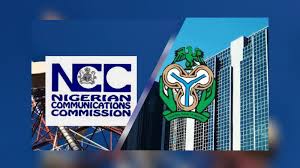Banks and Telcos Locked in Standoff Over Crucial USSD Pricing Agreement!

A significant dispute has emerged between banks and mobile network operators (MNOs) in Nigeria regarding the pricing mechanism for Unstructured Supplementary Service Data (USSD) shortcode service, a critical component for financial transactions. Prof Umar Danbatta, the Executive Vice Chairman of the Nigerian Communications Commission (NCC), revealed that no formal agreement on pricing has ever been established between the two parties, despite the service being widely used for financial transactions. This lack of resolution has prompted the Honourable Minister of Communications and Digital Economy, Dr Isa Pantami, to convene a crucial stakeholder meeting.
The upcoming meeting is expected to bring together key figures including the Central Bank of Nigeria (CBN) Governor, representatives from the banks, and officials from the NCC, along with the MNOs. This intervention follows a threat by telecommunication companies, operating under the Association of Licensed Telecommunications Operators of Nigeria (ALTON), to suspend USSD services due to an alleged N42 billion debt owed by banks. Prof Danbatta made these disclosures during a virtual press conference held on March 15, 2021, to commemorate World Consumer Rights Day, themed “Tackling Plastic Pollution.”
The core of the USSD dispute lies in the failure of banks and telcos to agree on a pricing methodology, even after the NCC introduced an updated billing model. This model aimed to zero-rate USSD transactions for end-users and mandated banks to pay telcos a flat fee of N1.63 from the service charge collected on each USSD transaction. However, banks have reportedly refused to remit these accumulated service costs, leading to the substantial debt of over N42 billion owed to network operators.
Prof Danbatta highlighted that banks are the primary beneficiaries of the USSD code, yet a fair sharing formula has not been agreed upon. He questioned the proportion of charges banks collect from customers for the service versus what they are willing to pay MNOs for leveraging their infrastructure. The NCC Vice Chairman expressed hope for a final resolution to the USSD dispute ahead of the scheduled meeting, emphasizing the importance of an amicable settlement to prevent telcos from suspending the service.
The potential suspension of USSD services poses a significant risk to Nigeria's financial inclusion strategy. USSD shortcodes provide an accessible alternative for approximately 40 million Nigerians, particularly those in unserved and underserved areas, to access essential financial services. Many rural dwellers with bank accounts rely on USSD for transactions like bank transfers, balance checks, and airtime top-ups, largely due to limited internet access and the inability to afford data plans for e-banking apps on feature phones or even smartphones.
Nigeria's financial inclusion rate currently stands at 50%, a modest 3% increase since 2012. The Federal Government's financial inclusion strategy targets 80% inclusion and only 20% exclusion. Data from Statista shows that the value of USSD transfers in Nigeria reached ₦390.5 million in June 2020. Should USSD services be withdrawn, mobile money services would also become inaccessible to a large number of mobile subscribers, potentially causing the financial inclusion rate to plummet to an abysmally low level, thus derailing the federal government's digital financial service strategy.
Recommended Articles
Telco Titans Rejoice: Banks Settle Staggering N300bn USSD Debts!

Nigerian commercial banks have settled a N300 billion USSD debt to telecoms operators, ending a five-year dispute with c...
Heated Debate Intensifies Over Electronic Transmission of Election Results

Nigeria's Senate has sparked controversy by amending the Electoral Amendment Bill, making real-time electronic transmiss...
Telecom Turbulence: CBN, NCC Tackle Failed Airtime & Data Transactions Amid Outage Woes

The Central Bank of Nigeria and the Nigerian Communications Commission are implementing a joint framework to resolve fai...
Telecom Giants Pour $1 Billion into Next-Gen Infrastructure for 2025 Expansion

The Nigerian Communications Commission (NCC) reports that telecom operators invested over $1 billion in 2025 to expand i...
Nigeria's 5G Rollout Stumbles: 55% Network Failure Rate Revealed

Nigeria's 5G rollout faces significant challenges, with an average 55% coverage gap reported despite increasing device r...
MTN's Profit Plunge: Forex Losses Decimate 2024 Earnings by 59%

MTN Group anticipates a significant decline in its full-year headline earnings per share due to foreign exchange impacts...
You may also like...
MVP Race in Jeopardy: Top Stars Shai Gilgeous-Alexander and Nikola Jokic Face Eligibility Crisis

The NBA MVP race is under threat as Shai Gilgeous-Alexander and Nikola Jokic near disqualification under the league’s 65...
Post-All-Star Battle: NBA Power Rankings Shake Up the League

Post-All-Star NBA power rankings highlight the Thunder, Spurs, and Pistons atop the standings, while injuries and em...
Netflix Chief Ted Sarandos Heads to White House for Crucial Warner Bros. Deal Talks

Netflix co-CEO Ted Sarandos is navigating complex negotiations for Warner Discovery amidst political pressure from Donal...
Paramount Skydance Faces Q4 Losses, Eyes Bold Warner Acquisition Bid

Paramount Skydance reported a widened Q4 loss driven by declines in TV advertising and distribution, even as streaming a...
Zimbabwe Unlocks Tourism Potential: Lock Brothers Set to Boost Harare's Visitor Numbers

Benjamin Lock is spearheading the development of The Hills Luxury Golf Estate in Harare, aiming to transform it into a p...
Unlock Supercharged Health: Experts Reveal 6 Habits for Enhanced Fat Jab Results & Heart Wellness

A Harvard study reveals that GLP-1 medications, combined with healthy lifestyle habits, can dramatically cut the risk of...
Nvidia Soars Again: Record Quarter Fuels AI Dominance

Nvidia, the world's most valuable company, reported record profits driven by an exponential surge in AI compute demand. ...
AI Unleashed: Gushwork's Search Gamble Pays Off with Early Success

India-founded startup Gushwork has secured $9 million in seed funding to help businesses navigate the evolving landscape...